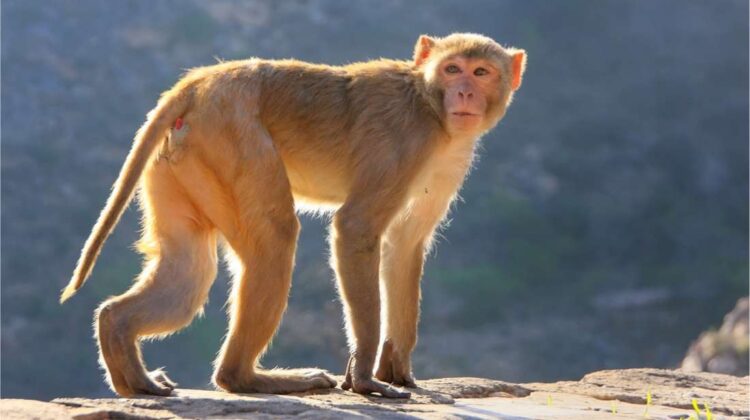
A team of Chinese scientists has transferred a gene crucial in human brain development into the genomes of monkeys in what is probably an ethically contentious endeavor. They assessed whether the changed monkeys performed better in cognitive tests than their control colleagues in subsequent experiments. The findings have been published in the journal National Science Review.
The human gene MCPH1 was implanted into 11 rhesus monkeys, five of which survived long enough to have their mental capacities assessed. The transgenic monkeys performed better on memory tests and response time trials than the non-gene-edited group, according to the team’s findings.
In one such memory test, the monkeys had to remember the color and shape of a stimulus that appeared on the screen for a set period of time. “Our preliminary cognitive test indicated a better short-term memory in the [transgenic] monkeys,” the researchers reported.
The monkeys’ brains were the same size as the control group, but they took longer to grow. The transgenic monkeys’ neuronal development and myelination – the process of membrane formation that wraps around nerve fibers to assist speed up nerve impulse transmission – were delayed, according to brain picture and tissue section examinations. According to the researchers, this is identical to the human developmental delay known as neoteny.
“One distinguishing feature of humans and nonhuman primates is that humans require a lot longer time to shape their neuro-networks during development, greatly extending childhood, i.e. ‘neoteny,'” wrote the scientists.
The study was carried out by the Chinese Academy of Sciences’ Kunming Institute of Zoology in collaboration with experts from the University of North Carolina in the United States.
The project has sparked debate in the moral community, and some in the scientific community are concerned. Many governments would not allow such study to continue, citing ethical concerns.
“The first ethical question is whether this research is scientifically robust enough to warrant the use of animals,” said Jacqueline Glover, a bioethicist at the University of Colorado. “Are the research methodologies capable of answering the issues posed by the scientists — if not, that’s the first hard stop?”
“The second question is whether using monkeys in particular is appropriate. Can this research be conducted using alternatives that do not endanger nonhuman primates? Jim Sikela, a colleague at the University of Colorado, has pointed out that organoids (i.e. modified cells in culture) from humans and chimps are available, and that they replicate many of the molecular/cellular properties of the brain. Human genes are being implanted in chimp brain oganoids as an alternative to using living monkeys to learn how human brain genes function.”
Some have referred to the discovery as a “slippery slope” in genetics research, while others are less concerned.
The genome of rhesus monkeys differs from ours by a few percent, according to Larry Baum, a researcher at Hong Kong University’s Centre for Genomic Sciences. “Humans and monkeys differ by millions of unique DNA bases.”
The study simply altered a few of the thousands of nucleotides in the gene. “You can decide whether there is anything to be concerned about.”
“Animal usage rules differ around the world, but there is a shared commitment to using animals only when there are no other options, utilizing the fewest number of animals for scientific validity, and adopting humane techniques for research,” Glover noted. “This last condition is particularly difficult because developing humanized monkeys may be inhumane in and of itself due to the physical, psychological, and social disadvantages that it implies.”
“Our findings demonstrated that transgenic nonhuman primates (excluding ape species) have the potential to provide important – and potentially unique – insights into basic questions about what makes humans unique, as well as disorders and clinically relevant phenotypes, such as neurodegenerative and social behavior disorders, that are difficult to study by other means,” the team concluded. However, such gains must always be balanced against any ethical considerations.”

Leave a Reply